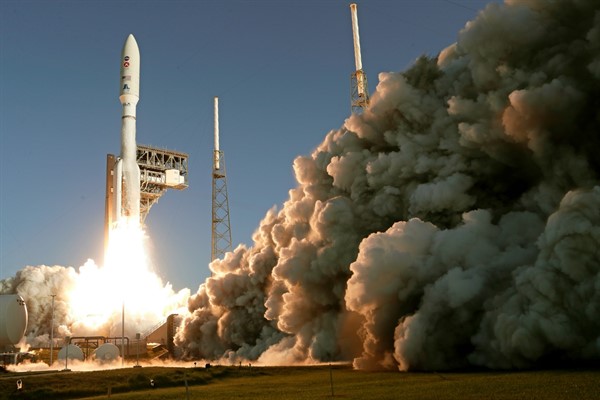President-elect Joe Biden is a down-to-earth guy, but the fate of the heavens may end up being one of his main foreign policy challenges. The United States has long sought to maintain outer space as an open, stable and rules-bound domain. Unfortunately, this cooperative vision is under stress. The emergence of new space-faring nations, an explosion of private commercial activity and a brewing arms race, among other issues, are all leaving outdated international institutions in the space dust.
Biden has made a “return to multilateralism” the core theme of his proposed foreign policy. Closing glaring gaps in outer space governance should be part of this agenda. Without broad agreement on principles, norms and rules of responsible behavior, today’s final frontier will soon resemble the Wild West of yesteryear.
Outer space has never been more important to the United States, or humanity at large. Space-based systems undergird national security and defense, sustain commercial exchange and economic growth, and provide new tools to better understand the Earth system, including climate change. Every day, billions of people worldwide rely on satellites to transfer money, establish their locations, communicate with friends and advance countless other goals.

